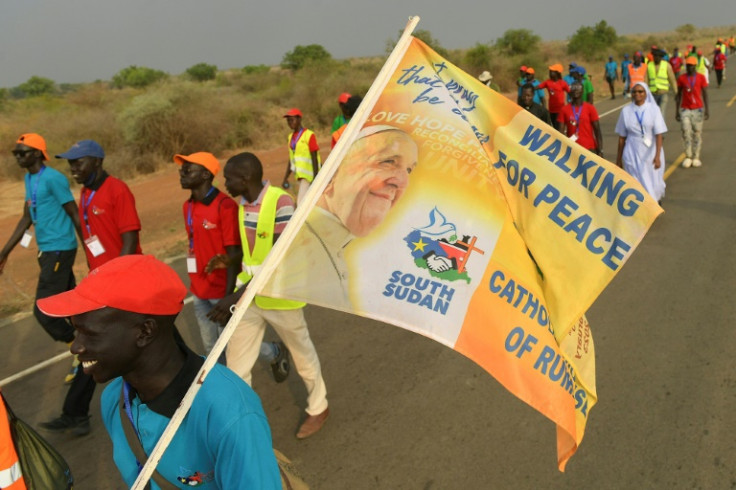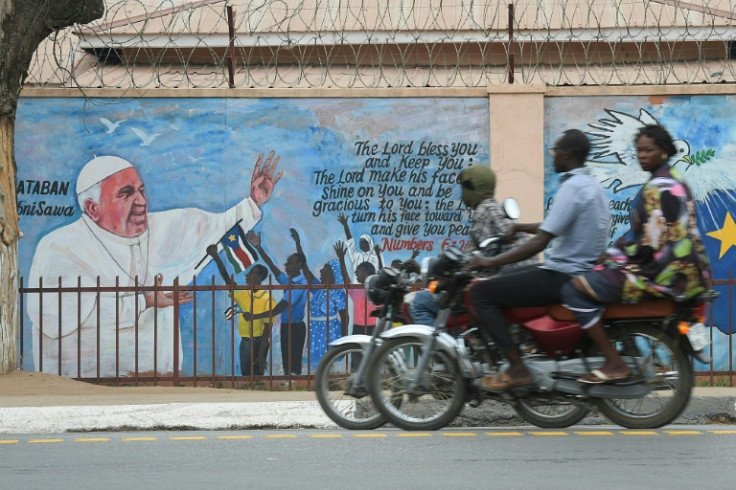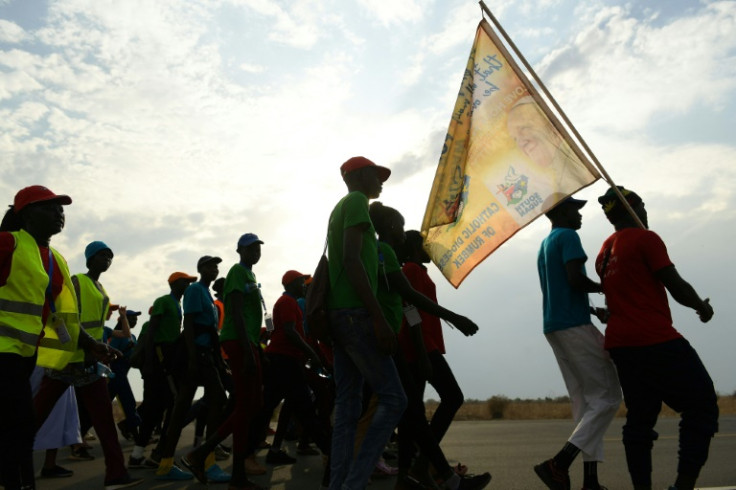Pilgrims Walk Nine Days To See Pope Francis In South Sudan

Hanah Zachariah is so determined to see Pope Francis in South Sudan that she walked nine days in sandals to reach the capital where he makes his long-awaited visit.
On Thursday, the 20-year-old reached the outskirts of Juba after walking most of the way from the central town of Rumbek -- a journey of around 400 kilometres (250 miles).
She was not alone.
Sixty other young pilgrims and spiritual leaders trod the distance, waving flags, singing hymns and preaching unity in a country scarred by years of civil war.
"We are walking for peace. When we reach Juba, we are going to welcome the pope. I am very excited to see him," Zachariah told AFP, as passing cars honked their horns and cheered at the colourful convoy.
Francis arrives on Friday for a three-day visit to South Sudan, the first by any pope since the predominantly Christian nation split from Muslim-majority Sudan in 2011.
Its history since independence has been marred by five years of ethnic bloodshed that left 380,000 people dead and much of the young country in ruins.
Many hope Francis can restore a spirit of unity and brotherhood, and South Sudanese are flocking to Juba to hear his message of reconciliation.
Among them is John Sebit, a pastoral worker who covered the distance from Rumbek along dirt roads in flip flops.
"When we started the journey, it was challenging. Some people had blisters on their feet... But with motivation, we kept going," the 26-year-old told AFP.
Father Christian Carlassare, the bishop of Rumbek, confessed to having "sore feet" after setting off on January 25 but said walking was a powerful act of solidarity.
"You do not walk alone," said Carlassare, an Italian who has lived in South Sudan for more than 15 years, and was shot multiple times at his home in 2021 after being named bishop.
"At every community we had the entire village -- really, hundreds of people -- who were coming to welcome us on the way."
To avoid the oppressive heat of the dry season, the pilgrims would start walking before dawn each day. They would set up camp each evening in classrooms along the way.
When the distance between stops was too great, support vehicles would assist with covering the outstanding distance, while a doctor onboard tended to cramps and bruises.
For some, the journey to the capital has proved eye opening.
"This is my first visit to Juba, and actually my first time stepping on a tarmac road," said 23-year-old John Mareng as he walked along the highway just outside Juba.
"Now, I have seen how this is reality."
Hailing from a broad cross-section of South Sudan's myriad ethnic groups, the pilgrims would perform skits for their hosts about the importance of kinship.
"We are walking as a group, as one people," said 20-year-old Tafisa Chol, a student in Rumbek.
"The message that we are hoping to give to the people, is that we should be one, and make peace among ourselves."


© Copyright AFP {{Year}}. All rights reserved.





















